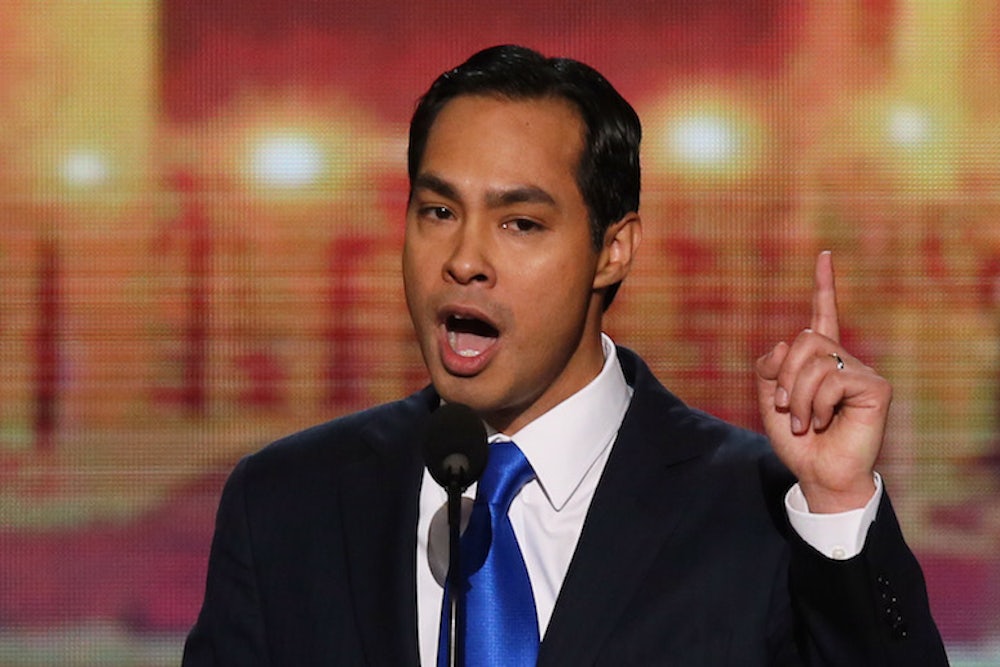"What better revenge than to put Romney into a meaningless department, never to be noticed again?"
That sentence wasn't composed by a scheming Barack Obama adviser, hoping to marginalize and silence his vanquished but vocal 2012 rival. They're the words of Nixon aide John Ehrlichman, describing his boss' 1968 scheme to neuter his primary campaign rival George Romney by appointing him to head an obscure agency with a liberal mission and take him out of contention for another run at the presidency four years later.
On January 20, 1969 the Senate confirmed Romney as Nixon's first Secretary of Housing and Urban Development.
Were Presidents Romney and Jack Kemp still alive, they would tell you all about how being HUD Secretary isn't historically a springboard to higher office. And that's one of the reasons Obama's plan to nominate rising Democratic star Julián Castro to follow in Romney and Kemp's footsteps is so surprising.
Castro is currently the Mayor of San Antonio, an office with relatively little power, but one that suggests a longer path toward national prominence that runs through the Texas governor's mansion. A HUD nomination would constitute a pretty significant detour. And I think there are three ways to look at the decision—one optimistic, one strategic, and one shortsighted—any of which could explain why Castro, Obama, and party strategists think this is a wise move.
An idealist might look at this and say the country has turned an important corner, around which heading a government agency tasked with providing services to low-income communities is no longer a political anvil around the neck. Or at least that today's Democrats are hoping to turn that corner.
A cynic, by contrast, would look ahead to 2016 and see a Democratic field that lacks seasoned Hispanic stars. Could Hillary Clinton (or whomever) pick a mayor of a medium-large city as her running mate? There's a real logic to priming Castro by placing him in the cabinet now.
But a pessimist would note that Obama has a frustrating tendency to pluck star Democrats out of red states and place them in his cabinet where their political prospects quickly erode. Castro's prospective nomination coincides with a growing recognition that Obama's probably not going to sign an immigration reform bill, and is looking for other ways to maintain the Democrats' huge edge in immigrant communities.
If that's the beginning and end of the story, it'll be a big waste. But there are good reasons to suspect Democrats have their eyes on the ball.
In a move that raised eyebrows about his political future, Mr. Castro shared lunch in February with former President Bill Clinton and Henry Cisneros, a former San Antonio mayor who went on to serve as housing secretary in Mr. Clinton’s cabinet.
“I advised that he accept a position for President Obama,” Mr. Cisneros said in an interview this year about the previous offer. “I thought that if he was going to be vice-presidential material in 2016, then he needed to be more than mayor at that time.”
